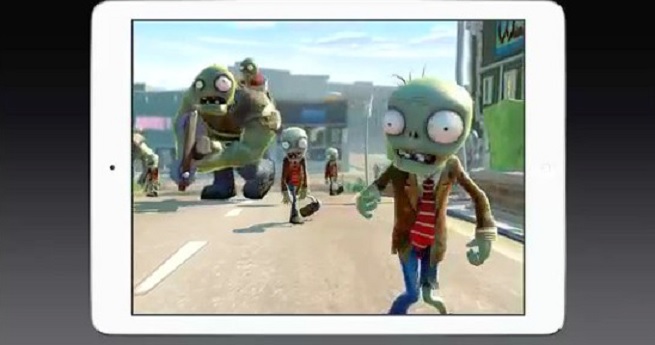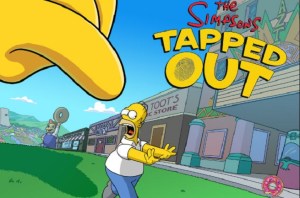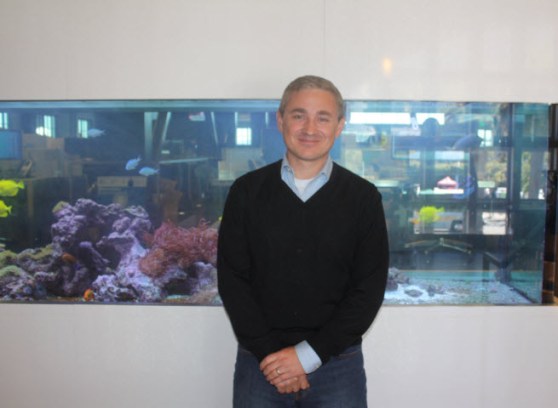After EA appointed Andrew Wilson as chief executive last year, longtime exec Frank Gibeau moved over from the EA Games Label to become executive vice president of EA Mobile. EA has more than 800 games in its mobile catalog, but it can’t beat some of the luckiest and smartest rivals in the category, like Supercell, the maker of Clash of Clans, or Candy Crush Saga publisher King.
That’s partly because EA’s mobile business, which it acquired in the Jamdat acquisition of 2005, started in feature phones and migrated to paid apps on smartphones. Only recently has EA begun to learn how to make free-to-play mobile games and operate them as live services. Gibeau wants EA to churn out dozens of prototypes a year, with teams as small as three people making a working mobile game in just three weeks. But EA will be disciplined about what it ships, reducing that number to about 12 a year. That will give EA plenty of shots and a chance to churn out games such as The Simpsons: Tapped Out, a mobile game that has monetized extremely well.
We caught up with Gibeau at EA’s headquarters in Redwood City. We talked about EA’s demo of its Frostbite game engine running on Apple’s Metal applications programming interface, which aims to improve 3D graphics on mobile devices dramatically. Here’s an edited transcript of our talk.
GamesBeat: Have you figured things out on the mobile side?
Frank Gibeau: I’ve been getting my Ph.D in the mobile business the last six or seven months. It’s been awesome. The focus has been great. We’re marshaling a new assault on the mobile business from Electronic Arts, going forward. We have some powerful competitive advantages, and we’ve got some things we can do better.
The big brands, the intellectual property, the production values, the technology, the creative talent, I think we’re in good shape there. What we’ve needed to master and we’re getting in position to be able to do is the science of live services, being able to engage customers and sustain that relationship over long periods of time.
As you know, in the live services business, it’s kind of a combination of art and science. While EA’s been good at the art, we haven’t always been good at the science. When we transitioned from feature phones that were premium, we were in good shape there. The transition to smart devices and freemium live services was something we had to learn from scratch, like a lot of other people. That’s what we’ve been doing over the last period of time. I feel like we’ve come through that. Now it’s about going on offense and creating some spectacular games.
On Monday, we made our first technology announcement, where we brought Frostbite over to mobile. Which is really exciting. The idea that Apple was going to pull the OpenGL stuff out of the way and allow us to talk directly to the metal was a huge win for a company like us, which has decades of investment in high-end 3D engines and assets and IP. That gives us a great opportunity to bring over a lot of the stuff that we’ve been building for PS3 and Xbox 360, as well as, in the future, Xbox One and PS4. It’s a big announcement for us.
They announced some other great things too, in terms of how they were optimizing the App Store, in terms of search. Some of the new ways you could merchandise with video and identity. The ecosystem at Apple just gets better and better. For us that’s key.
GamesBeat: Apple did a lot of work on Metal. Did you guys have to do much on the engine side to make this work?
Gibeau: Not as much as you’d think. The challenge had always been, how do you navigate all that overhead associated with OpenGL to get to experiences that you would find on your big-screen TV with a console? By removing that, it allowed us to do what we’re already doing in a very efficient way.
There was clearly a lot of rework that we’ve been having to do as far as getting to work in the battery environment, the power environment, looking at how certain aspects of mobile and the APIs are set up. But in general, that was a lot less difficult than you’d think. That’s good for us, because as the hardware gets better, we ride that.
GamesBeat: The general picture I have of mobile, or the question I have — why is it so easy for some folks and so hard for everyone else? The example I usually bring up, you guys have 800 or 900 games, but Supercell can get to the top-grossing position with just three games. That seems to go to this difference in knowing live services or getting used to them. You have a lot of advantages. You should be No. 1 by far, right?
Gibeau: That’s the mission, to get us into position for that. That’s what I’ve been spending the last seven months doing, getting us into position, restructuring and recalibrating our studios, how we go to market, our technology platform, so that we can get into that position.
Supercell is a spectacular company. But if you take a step back and look at the overall market, I think there’s 70,000 games shipped a year in mobile — 1.5 million apps just in Apple App Store? The difference between console and mobile is vast in terms of the competitive set, how you operate the games, the different network environments you deal with around the world. The level of complexity in the mobile business versus the console business is several orders of magnitude bigger.
When we’ve come over and started to look at how EA was going to compete and be successful there, again, you go back to a really clear-eyed competitive analysis. What are you good at? What are you the best at in the world? I would argue that we have the best portfolio of IP for the mobile business, everything from Plants Vs. Zombies to Bejeweled to the Sims to Real Racing to The Simpsons on down. I have great brands and IP and we’re building a whole bunch of new ones. We have talented developers. We have great tech. We have fantastic production values. But again, have we mastered the live services piece?
GamesBeat: This is kind of a restart?
Gibeau: That’s what we’re going after right now and that’s what Supercell has done such a great job, marrying spectacular games in Clash of Clans and Hay Day and Boom Beach, along with a sharp-clear-eyed sense of how to run a live service and maintain that over a long period of time across multiple geographies. Your contention is correct. They have done a very good job, and absolutely, their model works for them. But there’s not just one model. Supercell’s model is to have a few games and do them very well. EA has a broader opportunity, because we have more IP that appeal to different audiences. We’re going to build those up.
We don’t operate the 800 or 900 games you called out. We’re only building maybe a dozen games. If you look at our slate going forward and what we’ve launched over the last year, we’re going to a fewer, bigger strategy. That was one of the first decisions we made when we created this mobile division. We were going to fully invest in freemium live services games, in fewer and bigger games, much like we did in the console business over the years. You saw that strategy manifest itself in what we did with gen three and gen four. That playbook can work here, because Supercell has shown that it can work.
The difference is, there’s a lot of new features and ideas EA is going to be able to go after that are relatively easier to accomplish than not having IP, or not having technology, or not having production values, or not having the installs. You might argue that EA is generating very large audiences. If you look at Real Racing, it’s installed over 120 million times. If you look at App Annie, we had 600-plus million installs in the last 12 months. We’re bringing in the audience. What we’re not doing is servicing them in a live environment as effectively as our competition.
If we’re able to improve our performance on live services, with everything else being solid, then that should start to translate itself into a stronger leadership position for us. We’re very ambitious about mobile. We’re fully committed to it. It’s the biggest segment of gaming. It’s growing the fastest. It’s a global opportunity. It allows us to get into markets that are possible, like the middle east, southeast Asia, eventually India, obviously large sections of Asia, places that just aren’t console markets. From a PC standpoint, they’re okay PC businesses, but from a mobile standpoint, they’re rocking businesses.




